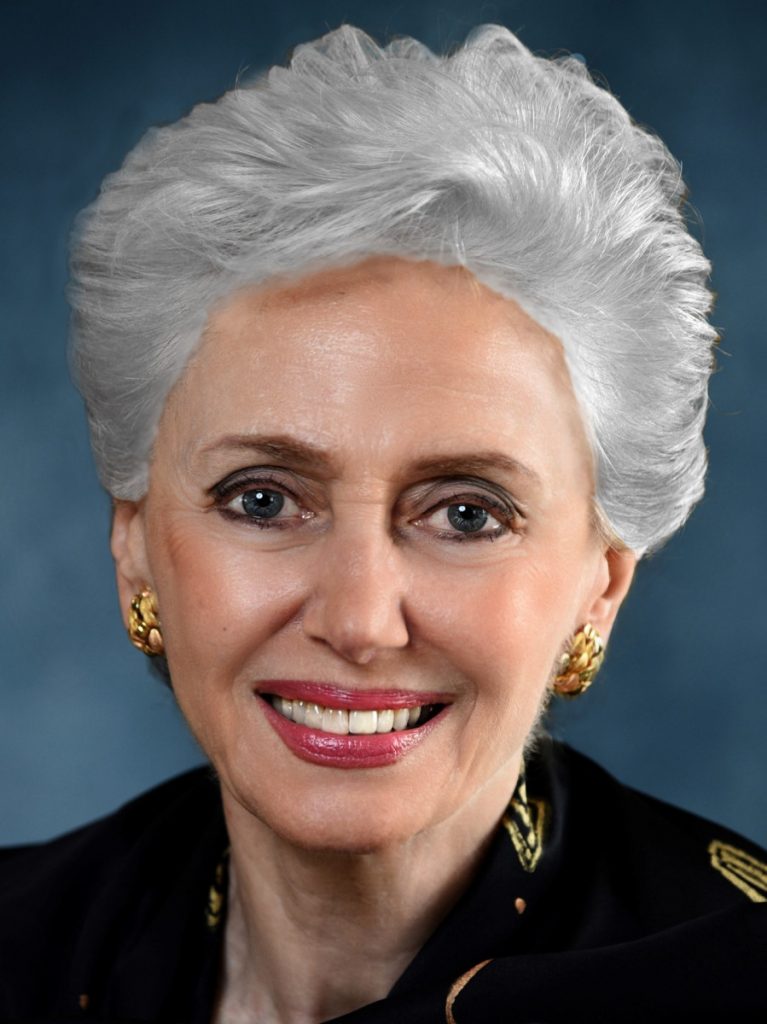The sociologist became a criminologist, then went into insurance and banking. Next, a broadcast journalist. Now a philanthropist and author. This is the broad spectrum of careers Georgette Bennett has held, intertwining throughout her life.
Bennett’s work focuses on conflict resolution and intergroup relations. She speaks at 2 p.m. Friday, July 1, in the Hall of Philosophy on “When America’s Global Conscience Fails: How the Syrian Crisis Upended the World Order and How Individual Conscience Can Help to Put it Right.”

“In the case of Syria, there was a massive failure of America’s global conscience,” Bennett said. “That failure occurred on a couple of different levels on foreign policy failure, which I will talk about, but also a failure of humanity, a failure of our policy for refugees and displaced persons.”
She said the consequences have been massive in terms of both death counts, and geopolitics. Her hope for her closing presentation of the Week One Interfaith Lecture Series theme of America’s Global Conscience” is to motivate, inspire and empower her audience.
“I hope rather than despairing about what goes on at the macro level, that it will inspire people to take action at the micro level,” Bennett said.
Her several career paths are all interwoven, Bennett said, and can all be tied back to her work as a sociologist. Bennett said she still uses resources from that job.
“Even though these seem like very diverse careers, all of them have a common thread,” Bennett said. “For all of them I use my sociologist’s tool kit in terms of the way I approach the work.”
Bennett founded the Tanenbaum Center for Interreligious Understanding in 1992, to continue her late husband, Rabbi Marc Tanenbaum’s legacy.
She has also founded multiple organizations to help displaced people and refugees.
“When (my husband) died he left me very inspired,” Bennett said. “I just decided that nothing I had been doing in my professional life was as important as building on his work. At the time that he died, there were at least 50 conflicts being waged around the world based, at least in part, on religion.”
Bennett said these conflicts had caused the number of displaced people to rise from 40 million in the world at the time, to 100 million, where it sits in 2022.
In 2013, she founded the Multifaith Alliance for Syrian Refugees. Bennett and her family had been Hungarian refugees who escaped the Holocaust and relocated to Queens, New York, so it’s an issue close to her heart.
“At the age of 67, in 2013, I read a report on the Syrian crisis issued by the International Rescue Committee. As a child of the Holocaust and a refugee myself, I was stunned by the magnitude of Syrian suffering,” Bennett told Forbes in 2021.
Throughout her life, Bennett has supported victims of religion-based war.
“I’m also going to tell a personal story about how one individual can confront a massive humanitarian crisis and the formula I used to address it,” Bennett said, “which resulted in delivering — as of now, but still counting — over $250 million worth of aid, most of it directly benefiting 2.7 million Syrian war victims.”




